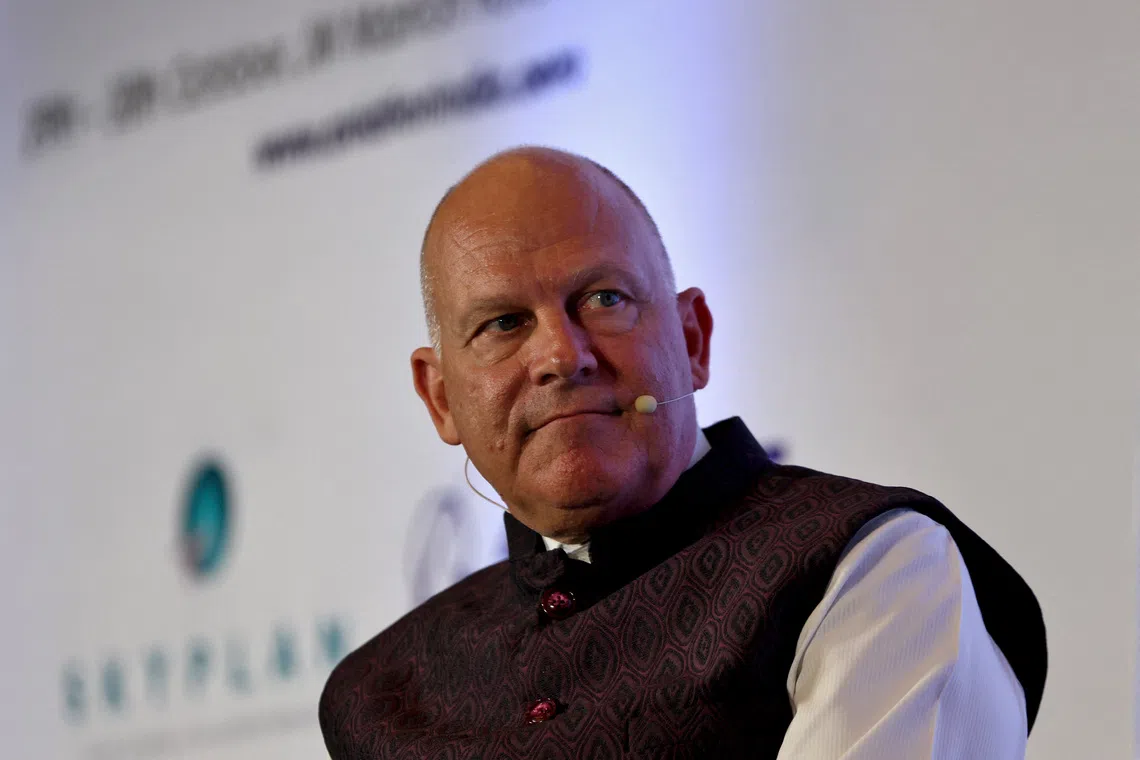Air India CEO vows improvements in first public comments after deadly June crash
Sign up now: Get ST's newsletters delivered to your inbox

Air India CEO Campbell Wilson attending an Aviation India event in New Delhi, India, on Oct 29.
PHOTO: REUTERS
Follow topic:
NEW DELHI – Air India’s chief executive officer vowed on Oct 29 to improve internal practices after a plane crash in June killed 260 people, in his first public comments about the accident that he said would contribute to a “challenging” year for the airline.
The Tata Group-owned carrier has been facing intense scrutiny ever since the crash, from warning notices for running planes without checking emergency equipment to not changing engine parts in time and forging records, along with other lapses related to crew fatigue management.
“We’re always looking at how we can keep improving,” CEO Campbell Wilson said at an Aviation India event in India’s capital city, speaking publicly for the first time since the crash of the Boeing Dreamliner in India’s Ahmedabad city
“This year will be quite challenging from a business perspective... We’re also working with the investigators,” he added.
Airspace constraints
India’s air accidents investigating agency published an interim report earlier in 2025 saying the plane’s fuel engine switches had almost simultaneously flipped
Air India also faces delayed jet deliveries and airspace closures due to geopolitical tensions, which have weighed on its performance as it strives to recover from the crash.
India and Pakistan fought their fiercest military conflict in decades
The two nuclear-armed neighbours have since closed their airspaces to each other’s airlines.
“Airspace constraints are a challenge to on-time performance,” Mr Wilson said. REUTERS

